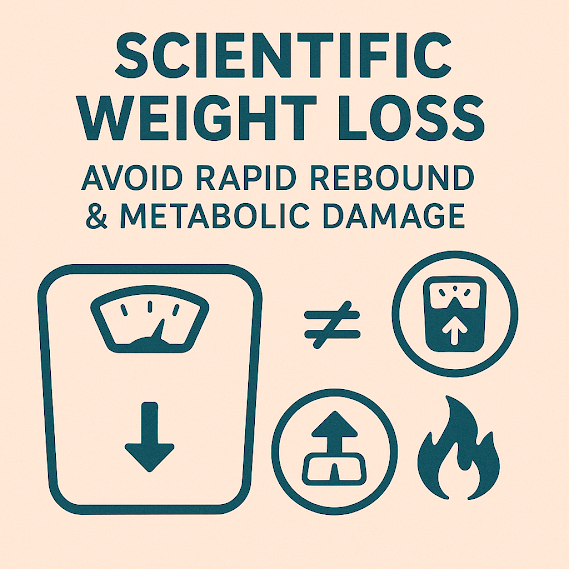Why You're Not Losing Weight Despite Trying Hard: 9 Key Points You May Be Overlooking
No one is born overweight. With the right approach, you can certainly lose weight! However, if you've made the decision to lose weight, committed to exercising, resisted food temptations, and turned down all high-calorie treats, yet still don't see any results, don't panic. Perhaps you've overlooked these nine key factors. Let's explore them together!
1. You Might Not Be Eating Enough
Are you struggling with weight loss because you're not eating enough? Surprisingly, yes! Losing weight often means eating less than before, but that doesn't mean completely cutting out certain foods or starving yourself. Drastically reducing your calorie intake can cause hunger, leading to binge eating or even anorexia. If you drastically cut back on calories, your body will eventually adapt to this state, making weight loss even harder. The best approach is to calculate your daily calorie needs based on your current weight using a calorie calculator, and then reduce your intake gradually.
2. Overeating After Exercise
Exercise helps burn calories and lose weight, but the fatigue after a workout doesn't mean you’ve burned a massive amount of calories. Even a high-intensity 30-minute workout might only burn a few hundred calories. So, avoid overeating after exercise. Even if you're tired or feel hungry, it's important to control your food intake and monitor the calories you consume.
3. You're Sleeping Less Than 7 Hours
Studies show that insufficient sleep can cause hormonal imbalances, leading to increased stress and heightened hunger. This, in turn, leads to cravings for high-calorie foods. Balancing your body functions and hormones is essential for weight loss, so ensure you get at least 7 hours of deep sleep every night.
4. Too Much Takeout
Even if you try to choose healthy food options, takeout meals often contain excessive calories and seasonings. Moreover, cooking at home helps burn calories too! From shopping for ingredients, washing and cutting vegetables, to cooking, every step helps you burn extra calories. So, try reducing takeout meals and cook more at home – you'll burn calories without even realizing it!
5. Eating While on the Phone or Watching TV
Eating while distracted by your phone or the TV reduces your satisfaction with the food and can lead to overeating. Studies show that when people are distracted during meals, they tend to consume several hundred extra calories. If you're used to eating while watching TV or on your phone, try slowly cutting back on this habit, or even move to a separate room to eat without distractions.
6. Eating Too Quickly
It usually takes the brain about 20 minutes to signal that you're full. So if you eat too quickly, your brain may not register that you're full, leading you to overeat. If you typically finish meals in just a few minutes, try stretching your meal time to 10 minutes, then 20 minutes, and focus on chewing slowly.
7. Overeating Low-Fat Foods
We often fall into the trap of thinking that eating zero-fat foods, no matter how much, won’t cause weight gain. However, this mindset is often a barrier to successful weight loss. Many low-fat foods contain added sugars, which can actually cause weight gain instead of helping with weight loss. When purchasing low-fat products, don't be fooled by the "low-fat" or "high-protein" labels. Always check the ingredients to ensure there's no added sugar.
8. Switching Diets Too Often
Finding the right weight loss method for yourself can be challenging. You might need to try different approaches, but switching diets too frequently can make weight loss even harder. Instead of constantly changing methods, stick with one approach long enough to see if it works for you. If you're unsure which method is best, consult a professional nutritionist.
9. Focusing on a Specific Weight Loss Goal
Many people set a specific target weight when they start their weight loss journey. When they hit their target, they feel happy, but when they don’t, it leads to feelings of disappointment, frustration, and even a complete disregard for their diet. This emotional rollercoaster can lead to giving up or changing weight loss strategies. Rather than focusing on a specific number, aim to turn weight loss into a lifestyle habit. A balanced approach to diet and exercise will help you gradually lose weight and maintain it without the fear of regaining it.











Comments
Post a Comment